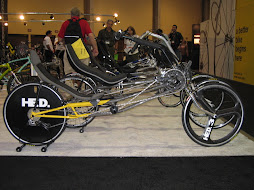Saturday, February 28, 2009
Everyone wants a piece of the stimulus action
Even good old oil companies: NPR story here about how Shell is arguing that they need offshore drilling as they expect demand for oil will double by 2050. Well if that is allowed to happen, then look out. Business as usual for another half century does not sound like sound policy considering what scientists are telling us about the state we are in already.
Friday, February 27, 2009
An example
Here is a perfect example of how NOT to stimulate the economy. Just as the Japanese government is faced with falling tax receipts, and drastically increasing costs with an aging population, they do something as stupid as THIS and reduce the cost of driving presumably to encourage people to drive more which no doubt would have some overall effect on an economy. The rational is perhaps that if the export market is tanking we should stimulate domestic demand. But this fails to recognise two things: (1) Japanese do not traditionally buy the same things they export, nor is it necessarily a good thing to try to make them do so, and (2) there may be a very good reason that foreign countries are cutting back on their imports of these items, and stimulating demand domestically will just put Japan well behind the curve in terms of adapting to the changing world. This is a very great pity, because Japan has traditionally been ahead of the curve in its focus on family, lifestyle and culture over purely economic factors. But the pointy heads seem to have forgotten that efficiency in an economy is not simply the efficiency with which we can create crap that other people will buy - no. Efficiency at the national level is what matters. Indeed efficiency at a global level may be required to meet environmental targets, but it is national efficiency that is increasingly important for a country wishing to be competitive. And when it comes to transport systems, nothing is more efficient than rail (and the high-density cities that come with it, thus walking and cycling, which add further efficiencies by improving the health of the population, not to mention the land use efficiency when cities dependent on motor transport find a quarter or third of their land devoted to the automobile). This is why I find news like this- that the Japanese government would subsidize driving at a time like this extremely disappointing.
Wednesday, February 25, 2009
Why we cannot be slave to the economy
Crazy opinion piece here in Reuters suggesting that the fastest way to revive "the economy" is to legalize drugs and tax them. There is probably little doubt that this would "work" in a sense. But it is equally obvious that it cannot be done without forever transforming that "economy" into something very different to what it was before. This example highlights the obvious, but often forgotten fact that economies should not be judged purely on dollars and whether it is in overall growth or contraction as financial economists would have us believe. The lesson is especially important in times like these when our economies are contracting. If governments must experiment with fiscal stimulus, then at least do it in ways that will improve quality of life in real tangible ways rather than just trying to push the lever of growth over substance. If you have followed this blog, you will know what we mean by that - things like urban redevelopment into walkable safe car-free communities, better train systems, mass transit, Velib type programs and the like.
Monday, February 09, 2009
Nice Little Video
It's Your Ride from Cinecycle on Vimeo.
Thanks Alastair.
Of course, there are probably a few too many grungy shots of the bike going over broken glass or through big scary black-hole puddles - but it is a tyre commercial after all.
Sunday, February 08, 2009
Subscribe to:
Posts (Atom)

